Remember those plastic pink flamingos people used to place in their yards for decoration? Sometimes they were dressed up, sometimes they were unadorned, but these lawn ornaments always possessed a certain tacky appeal that has proven to yield undeniable staying power.
Now the ultimate symbol of nostalgia, kitsch, and tongue-in-cheek tackiness, these bright pink knickknacks first adorned yards in a sincere, non-ironic attempt at outdoor beautification. Indeed, the pink flamingo evolved, in part, as a result of post-World War II construction trends. Because new units were built to look almost identical, homeowners were eager to mark their unique territory and set their house apart in some way, even if it entailed sticking a plastic tropical bird into the grass outside the front door.
While these lawn ornaments have ebbed and flowed in popularity, throughout my years I’ve encountered flamingos decked out in sunglasses, dressed up in hula skirts, and adorned with tropical leis[1]. I’ve even seen these feathery figures festooned with Santa hats and graduation caps to connote seasonal shifts and promote monumental life events. There’s just something about pink flamingos that resonates with people and encourages them to create their own slice of paradise in an immediate, personalized way on their front lawns.
Yet, this appeal isn’t specifically reserved for flamingos. From thematic garden gnomes to funky, tricked out mailboxes, people have a way of using their homes to mirror their personalities. With this in mind, perhaps it is no surprise books would one day enter the lawn-decorating equation.
Little Free Library originated as “a nonprofit organization that inspires a love of reading, builds community, and sparks creativity by fostering neighborhood book exchanges around the world.” Drawing inspiration from a one-room schoolhouse, Todd H. Bol designed the first LFL in his home of Hudson, Wisconsin and then proceeded to donate 30 additional libraries to friends and families in a humble effort to see if his idea would take off.
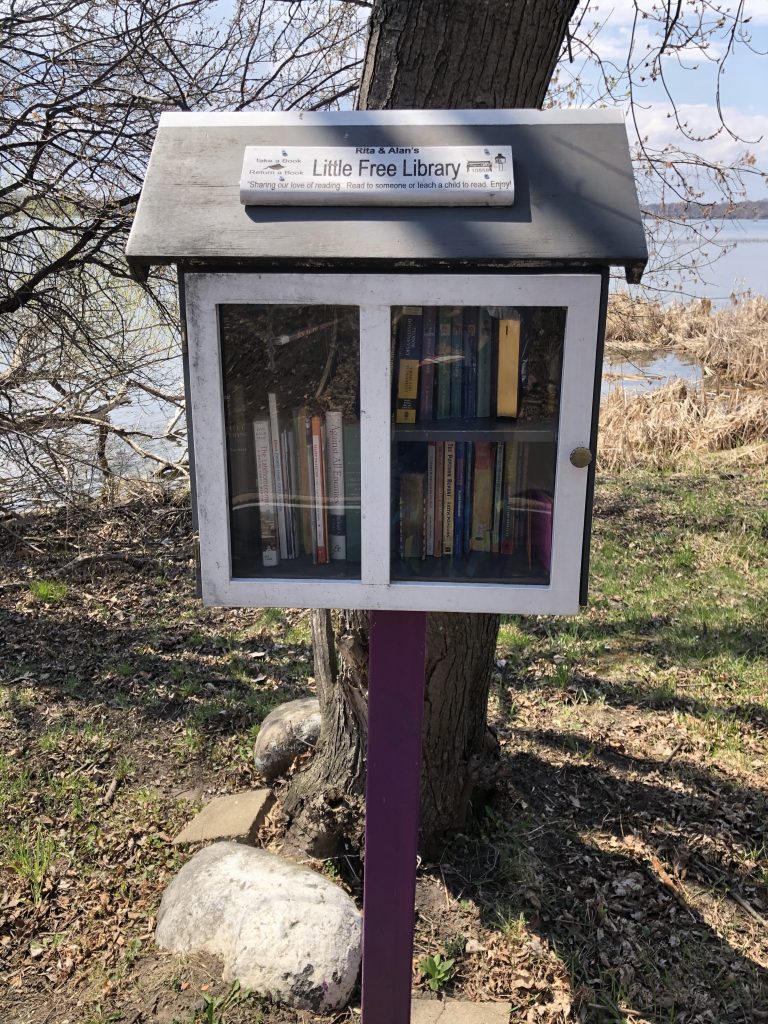
The model is simple: “Take a book, share a book.” Schools, churches, and individuals everywhere can build a “little library” and fill it with “free” books. Patrons are invited to peruse local offerings and select titles of their choosing provided they replace selections with other books for future strangers to discover.
Enthusiasm quickly spread throughout Bol’s community, and in 2012 he joined forces with the University of Wisconsin-Madison to fund and build over 4,000 LFLs to spread throughout “America’s Dairyland.” That year Bol officially registered LFL as a nonprofit, and in 2013 the organization received the Innovations in Reading Prize from the National Book Foundation. There are now over 100,000 registered Little Free Libraries in 100+ countries around the world. Millions of titles are exchanged each year, profoundly increasing book access to readers of all ages and demographics.
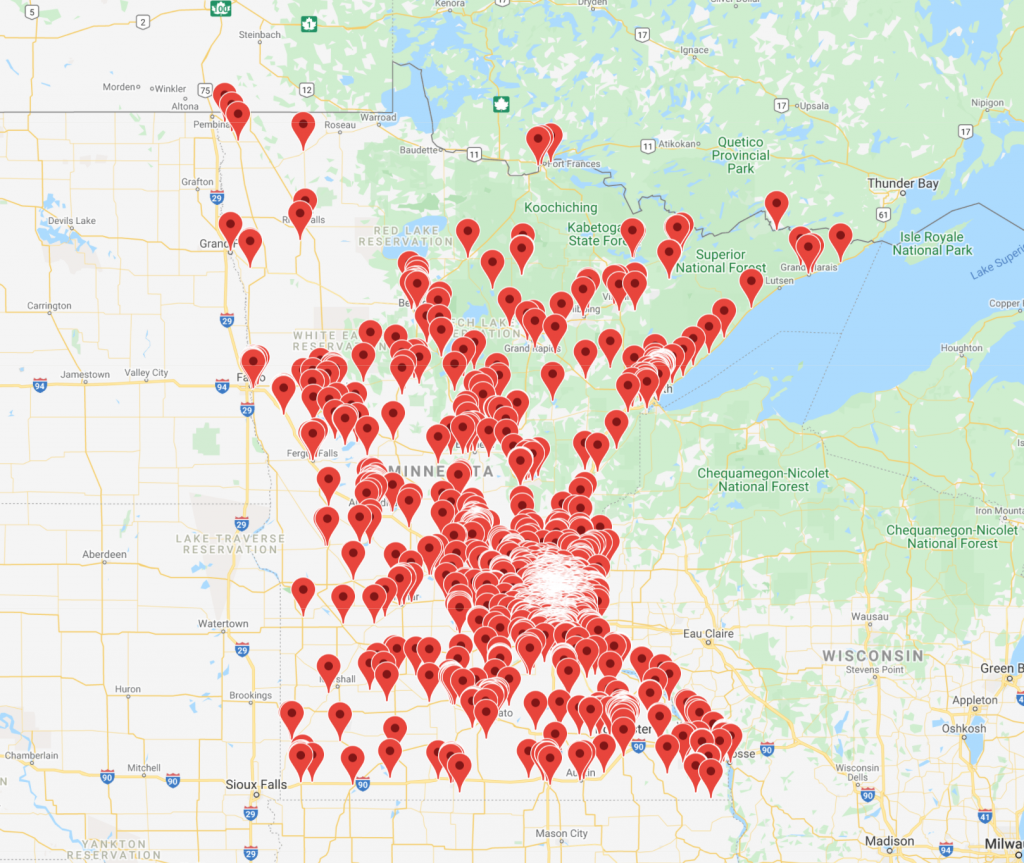
Cool. But how do Little Free Libraries relate to pink flamingo lawn ornaments[2]?
Notably, Little Free Libraries come in all shapes and sizes and have continued to evolve over the years as they’ve gained traction and captured the hearts of bibliophiles everywhere. Not unlike pink flamingos, LFL “stewards” have quickly come to view these libraries as creative ways to define and accentuate otherwise ordinary spaces, and artistic efforts for personalization have come to characterize this newly emerging literary scene. From Dr. Seuss inspired structures to hobbit-themed libraries, LFLs everywhere exhibit community pride and proudly display unique interests and passions. In this vein, many LFLs have evolved to resemble the very homes they dwell outside of, and Victorian mini mansions, stately Craftsman structures, and rustic log cabins have popped up across the country, teeming with knowledge and stuffed to the gills with literary goodness.
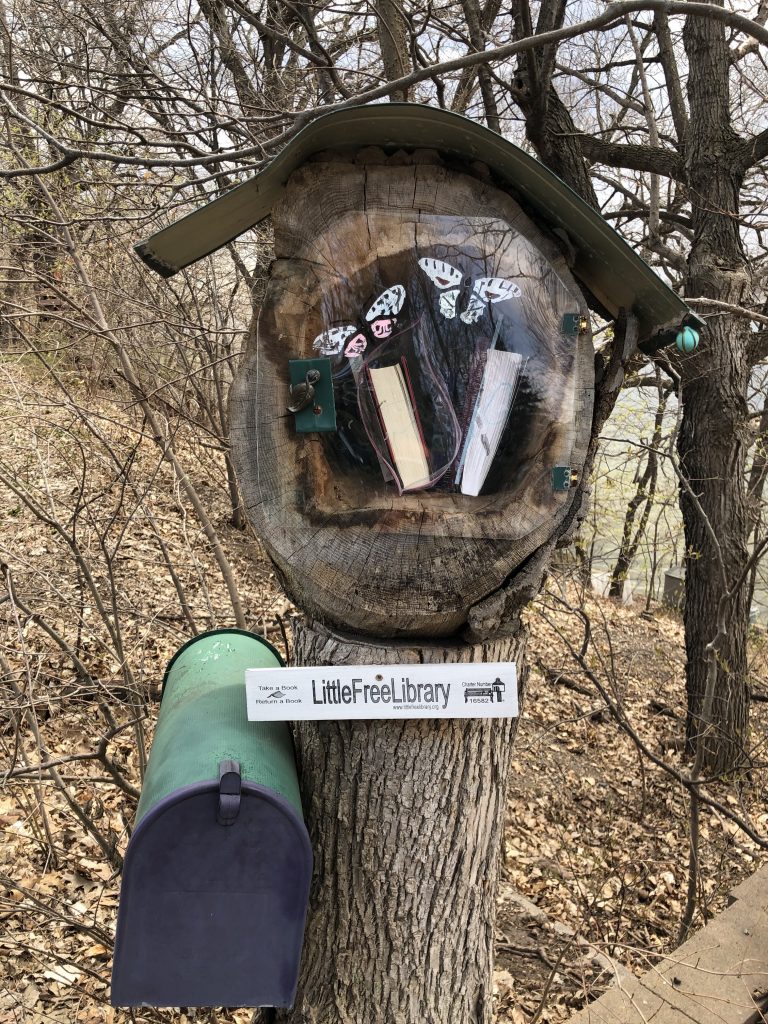
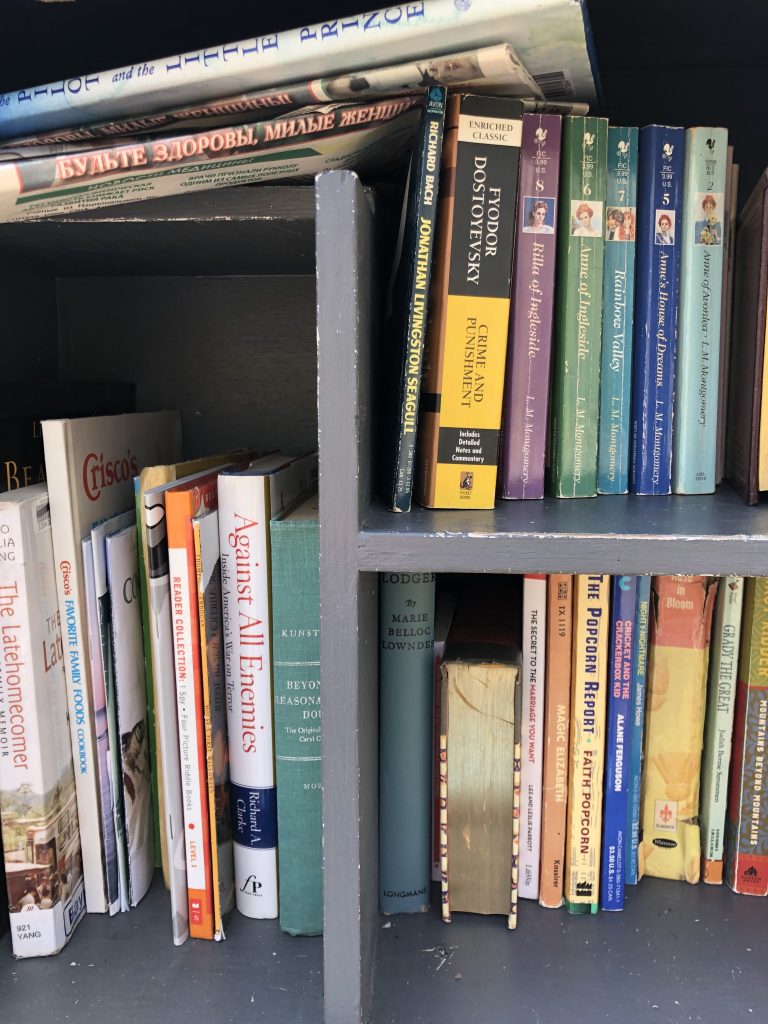
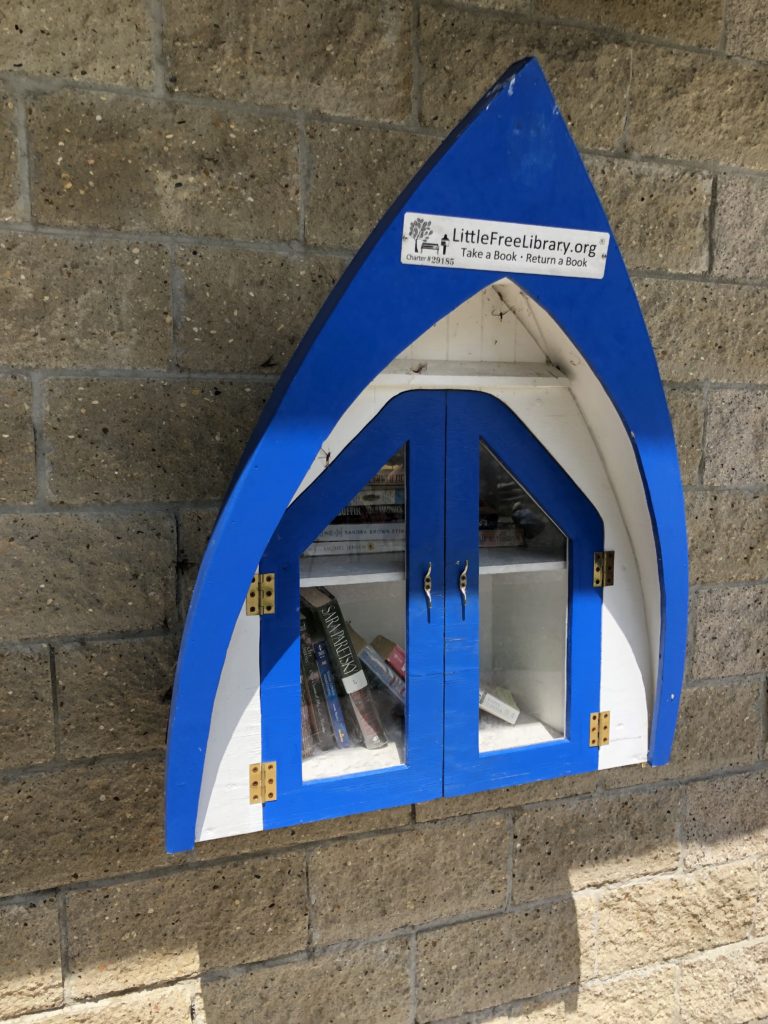
Books have a magical way of bringing people together across time, space, and place, and LFLs have a monumental effect on the communities they sprout up in. On average, children who grow up in homes without books are three years behind kids who grow up with ample access to literature. Increasing children’s access to books is one of the most the proven ways to increase literacy, and therefore in addition to regular libraries these miniature pop-up communities provide local, 24/7 resources that put books in the hands of anyone curious enough to flip through their pages. According to the Little Free Library website, 3 out of 4 people report they’ve read a book they normally would not have read because of Little Free Library; 73% of people say they’ve met more neighbors because of Little Free Library; and 92% of people say their neighborhood feels like a friendlier place because of Little Free Library.
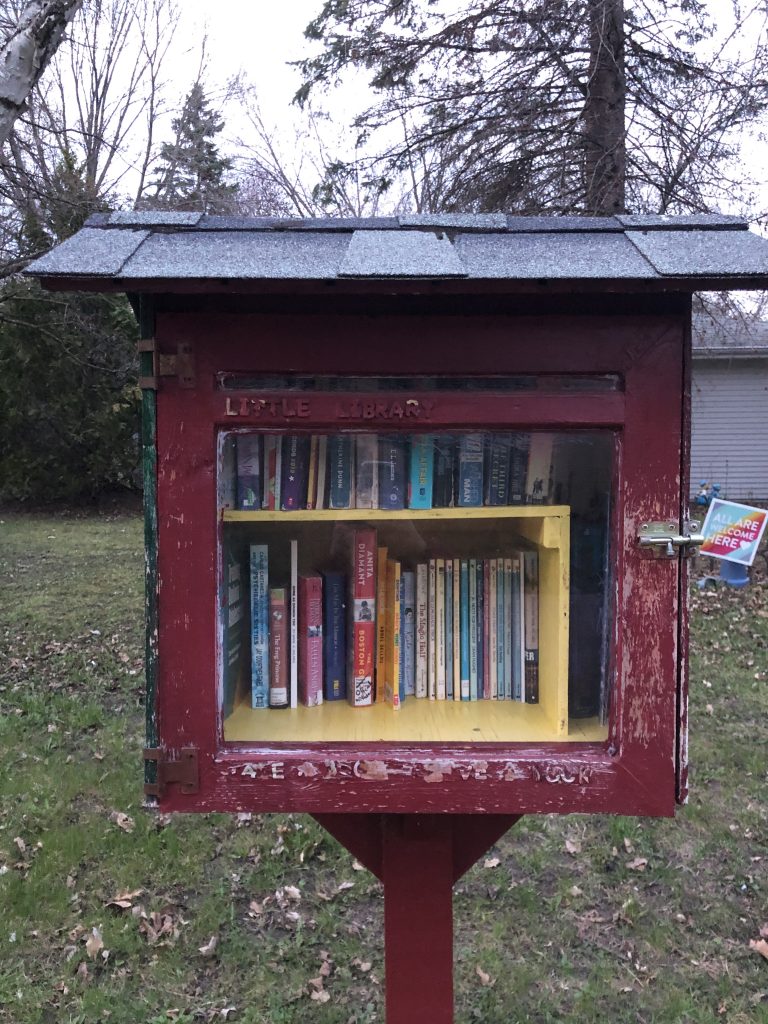
Clearly LFLs have a powerful effect on communities, and perhaps this is the case now more than ever. The COVID-19 crisis is causing more and more neighborhoods to experience food insecurity; if recent trips to the grocery store have taught us anything, it’s that certain products are in impossibly high demand. In response to these hard times, LFL stewards have transformed their structures from places that house books to tiny community centers that readily distribute food, facemasks, toiletries, and other household items to support COVID-19 relief efforts. Just like traditional LFLs, the ask for pandemic-converted structures is simple: Take what you need, replenish what you can.
Not only do these libraries-turned-pantries offer just-in-time resources, but they also symbolize an overwhelming show of support, solidarity, and community for those who need it most. This anonymous, no-questions-asked system inspires good Samaritans everywhere to come out of the woodwork, show up for one another, and pay it forward in humble, surprisingly heroic ways.
Take a book, share a book.
Take what you need, replenish what you can.
Two simple, beautiful mottos that inspire hope and establish community resilience.
Not only are we all in this together, but we will all get through
this together, one book, one can, one face mask—even one flamingo—at a time.

[1] Picking up on a theme here?
[2] Patience, young grasshopper: We’re getting there.



Comments are closed.